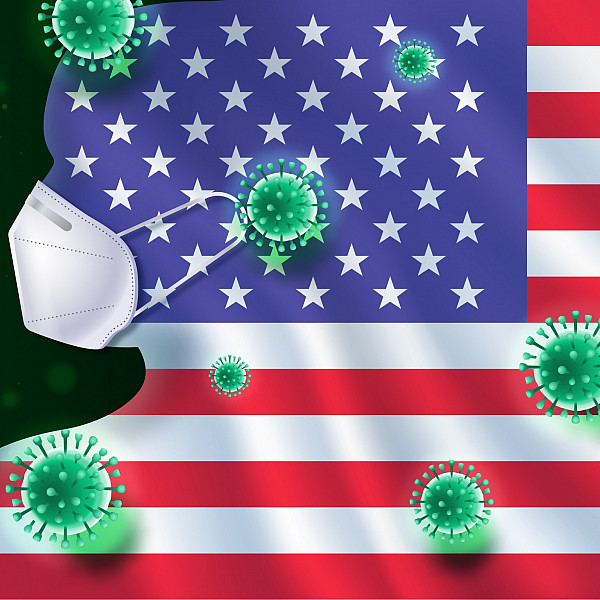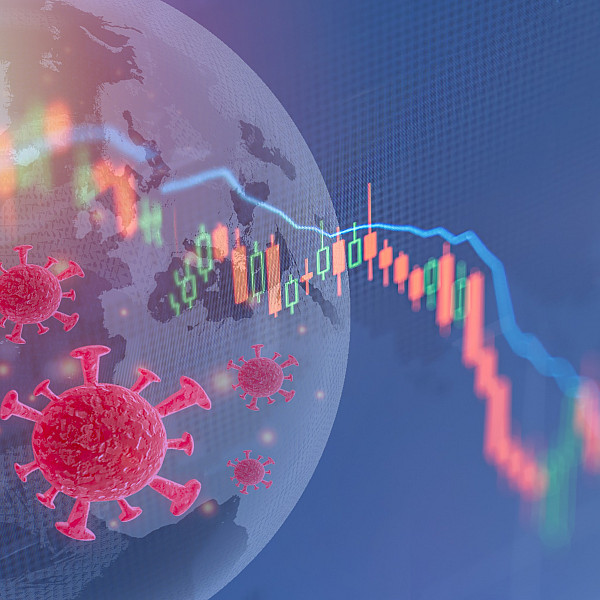News
Scholarly Perspectives on COVID-19, Part 6: The Psychology of a Pandemic
October 22, 2020
October 22, 2020
Open gallery

This is the sixth in a series on Southwestern faculty perspectives on severe acute respiratory syndrome coronavirus 2 (SARS-CoV-2) and coronavirus disease 2019 (COVID-19). Part 1 focused on biology, part 2 on mathematics, part 3 on economics, part 4 on sociology, and part 5 on political science.
COVID-19 continues to affect our lives in myriad ways, and for many, the pandemic has had acute and chronic impacts on our psyches. Talk to friends, family members, neighbors, teachers, and classmates, and you’ll hear common notes: people are reporting sleep disruptions and insomnia, elevated anxiety and depression, feelings of isolation, melancholy over lost daily interactions, stress from new ways of doing work and school, frustration with disrupted routines, Zoom-related and other fatigue, and, for those who have not grown numb to the human lives lost represented as mere statistics, grief for the nearly 1.1 million people who have died from the disease. This past summer, the Centers for Disease Control and Prevention (CDC) reported that U.S. adults were experiencing increased adverse mental-health conditions thanks to the pandemic. Not surprisingly, the CDC also found that “younger adults, racial/ethnic minorities, essential workers, and unpaid adult caregivers reported having experienced disproportionately worse mental-health outcomes, increased substance use, and elevated suicidal ideation.” For so many, the pandemic has taken a substantial toll on our mental health.
By contrast, the reactions of many individuals to the pandemic suggest a devil-may-care attitude and what some perceive as a lack of concern for the well-being of others. We’ve seen such risk-taking behaviors on the news and in our feeds, if not in person: Defiant shoppers refuse to wear masks or choose to wear them improperly. Vacationers celebrated the summer by filling beaches and packing bars and restaurants. Students at many universities greeted the fall semester by hosting or attending large parties with no observance of social-distancing regulations. It’s a behavior some have referred to as “the logic of the prohibition” or what some behavioral scientists call “reactance”: when you’re told not to do something—even if it’s in the name of your own health and that of the community—some part of your brain tells you to do it anyway.
What causes such glaring differences in response, and what might be the long-term psychological effects of the ongoing pandemic?
Associate Professor of Psychology Bryan D. Neighbors specializes in personality
Given your research and teaching about psychology, anxiety, and high-risk behaviors, what’s your perspective on the COVID-19 pandemic more broadly?
This pandemic, with its far-reaching social and economic ramifications, is clearly the most significant natural disaster to strike humankind in all of our lifetimes. Its psychological impact is profound due to the anxiety created by the very real risks to every person’s health and of death—if not for ourselves, then for our loved ones. This anxiety is compounded by the pervasive uncertainty about the longevity of the pandemic and the social-distancing response, the extent of the health and death risks, the potential effectiveness of mitigation efforts, the likelihood of available treatment, the possibility of a preventative vaccine, and the significance of the long-term economic harm.
The COVID-19 pandemic’s psychological impact is profound due to the anxiety created by the very real risks to every person’s health and of death.
What are the psychological effects of the response (global or U.S., governmental or individual) to the pandemic?
This is very complicated because there is no singular response. We have been affected by the responses of all levels of government entities, the healthcare system, the education system, the media, our workplaces, and our fellow community members, as well as those of other nations. I am of the opinion that “we” were grossly underprepared and responded too slowly—but that is an opinion based on hindsight. What I think is clear is that the rapidity of the spread of the virus along with the breadth of its impact have dictated the need for such a variety of responses, and all of this certainly adds to the difficulty and stressfulness we are experiencing in trying to cope with it all.
How might the psychological impacts of COVID-19 compare with those of previous pandemics or other widespread crises?
This is beyond the scope of my expertise, so I cannot speak definitively. These are difficult phenomena to study, but there are psychological studies of the effects of various natural disasters. They have shown that many people who experience them also experience a host of negative psychological consequences, and some are long term (including traumatic stress disorders and depression). But it is important to note that many people who experience extensive disasters do not experience long-term negative psychological effects (to the best of our ability to make this determination). However, it also appears that this pandemic will be more far reaching than any of those that people alive can remember.
What do you most want to learn about COVID-19 in the years of research to come?
The issue brought to light by this pandemic that I am most interested to learn about is the need under circumstances like this one to be able to provide mental healthcare remotely. I have an ongoing research project evaluating the effectiveness of a substance-abuse treatment program for felony offenders. Their aftercare program, which centers on support groups, had to be put on hold due to social-gathering restrictions. Although such groups could be held electronically, it is erroneous to assume that everyone has the ability to engage in this manner—many categorically do not, and this is most true for those who are already grossly underserved, those who are without the financial means to avail themselves of the wonderful technology most of us are currently taking for granted. This is a worst-case scenario for individuals in this program who have successfully negotiated an inpatient treatment program only to have their support terminated. This is no doubt occurring across the country in a wide variety of programs, and the ramifications will be far reaching. So I am interested to see whether this crisis will serve as a wake-up call for the mental-health field, and for our country more broadly, that it is imperative that we use our nation’s riches to fund and build programs to support those most in need.
Are there specific resources you would recommend to readers who want to learn more about coping strategies during the pandemic or the psychological approach to public-health crises?
Dr. Roxanne Cohen Silver, at the University of California Irvine, is an expert in the ways individuals and communities cope with disasters. In a recently recorded podcast, she addresses the psychological impacts of the pandemic.
The Association for Psychological Science (APS) is the nation’s leading organization supporting psychological research, and it has posted a rich collection of science-based resources here.
Southwestern University’s Counseling Center recently posted a link and summary of an article published by the American Psychological Association (APA) [on social distancing and social support].
The APA also has some guidelines for managing stress during this time. Research points to a few key ways to cope with this difficult situation, including
- Limit news consumption to reliable sources
- Create and follow a daily routine
- Stay virtually connected with others
- Maintain a healthy lifestyle
- Use psychological strategies to manage stress and stay positive
What positive outcomes might we see from COVID-19?
If there is something good to come out of this crisis, it may be a deepened appreciation for how much we all need each other. In the modern world, people often live as if they inhabit their own unique universe. My hope is that this experience will help us better appreciate that we live in a community of dependence, and that it will move us in the direction of strengthening the community bonds that are so essential to the human experience.

















